Merry Christmas
During your Christmas break we hope you can:
- Spend time with the people you care about.
- Do the things that you enjoy.
- Watch your favourite program.
- Make somebody laugh and smile.
- Do something nice for somebody else.
- Visit your favourite place.
- Play with your toys
and finally have a wonderful Christmas and see you all in 2023!
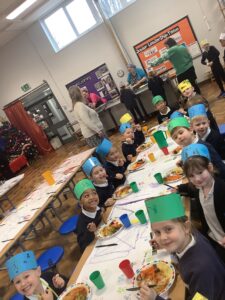
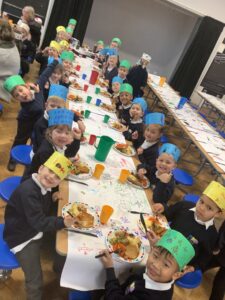
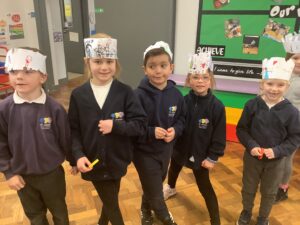
Christingle and Christmas Production
What a busy week we’ve had in Year 1 and 2. On Wednesday, we went to church to celebrate Christingle. The children did a fab job singing their song ‘In a Stable’ and holding their candle very carefully.
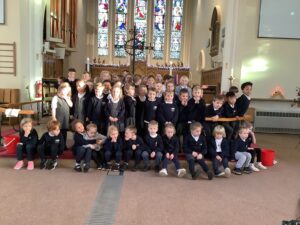
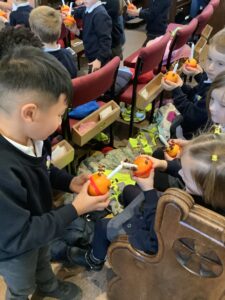
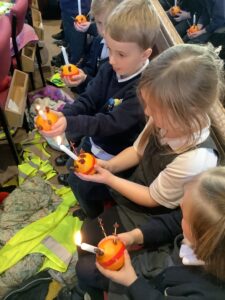
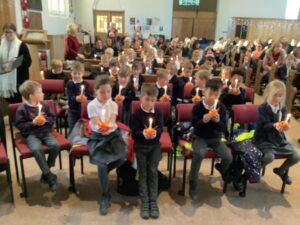
We’ve also performed our Christmas production three times to an audience. We are all so proud of how well they all did.
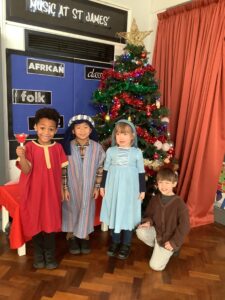
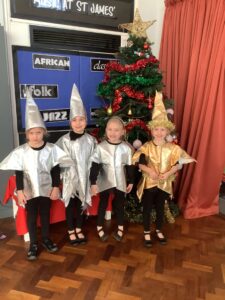
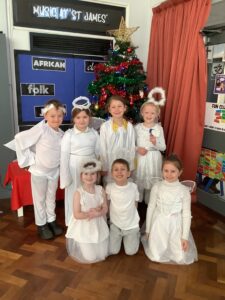
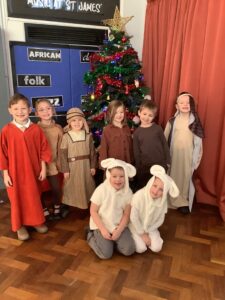
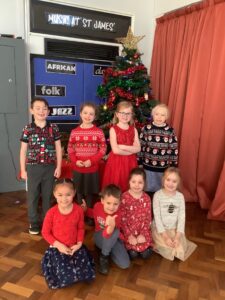
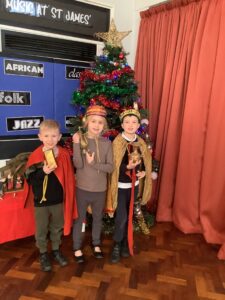
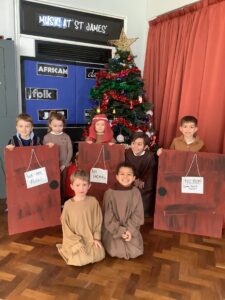
Christmas events
It’s a busy time of year with so many things happening. Here is a reminder of the Christmas events taking place over the next two weeks:
Wednesday 7th December, 2pm: Christingle Service at St James’ Church
Thursday 8th December, 2.15pm: Early Years and KS1 Christmas play
Friday 9th December, 9.30am: Early Years and KS1 Christmas play
Tuesday 13th December: Christmas dinner
Wednesday 14th December: Early Years and KS1 parties (non-uniform)
Thursday 15th December: Ks2 parties (non-uniform)
During our productions, we will be raising money for our new school charity voted for by the Junior Leadership Team. This year we will be supporting Cancer Research UK.
Author visit – Alex Willmore
This afternoon, we watched and listened to the author and illustrator Alex Willmore reading his story I did see a mammoth, live on zoom.
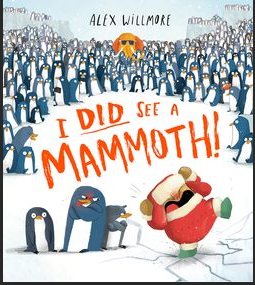
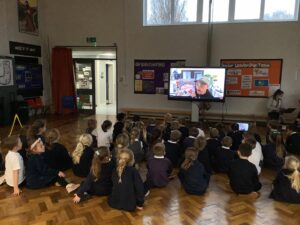
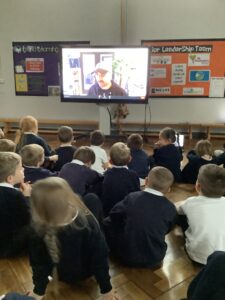
Afterwards, we helped Alex draw a mammoth coming up with lots of different ideas. We suggested he could draw the mammoth wearing a Christmas jumper and elf shoes.
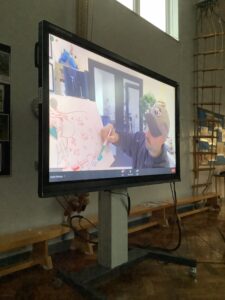
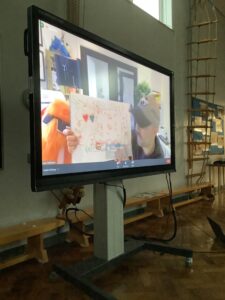
Challenge: Have a go at drawing a mammoth at home. Think about what they might be wearing, where they are, is there anyone/anything else around them? Bring your drawings in to share with your friends.
Anti-bullying week: Odd Socks Day!
Today for our anti-bullying day, we joined the nation by focussing on the message of “reaching out”. We talked about how this had several meanings: reaching out to a trusted adult for support/advice, reaching out to the victim to see if they are okay, or reaching out to make a change.
We looked at our school’s definition of bullying :
“Bullying is when you hurt someone physically or emotionally (including online), Several Times On Purpose”
Whilst we hope this would never be the case in our school, we also discussed what you can do if you were to experience bullying at St James’:
“Start Telling Other People. You could use the Living and Learning box, the worry box, email stayingsafe@spherefederation.org or even call Childline (0800 1111).”
We celebrated the message that everyone is different and equal by wearing odd socks to school and creating our own socks.
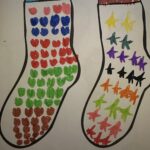
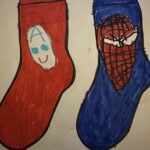
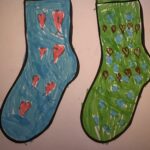
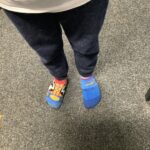
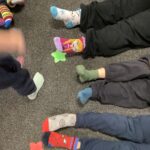
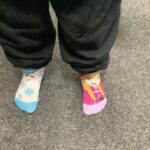
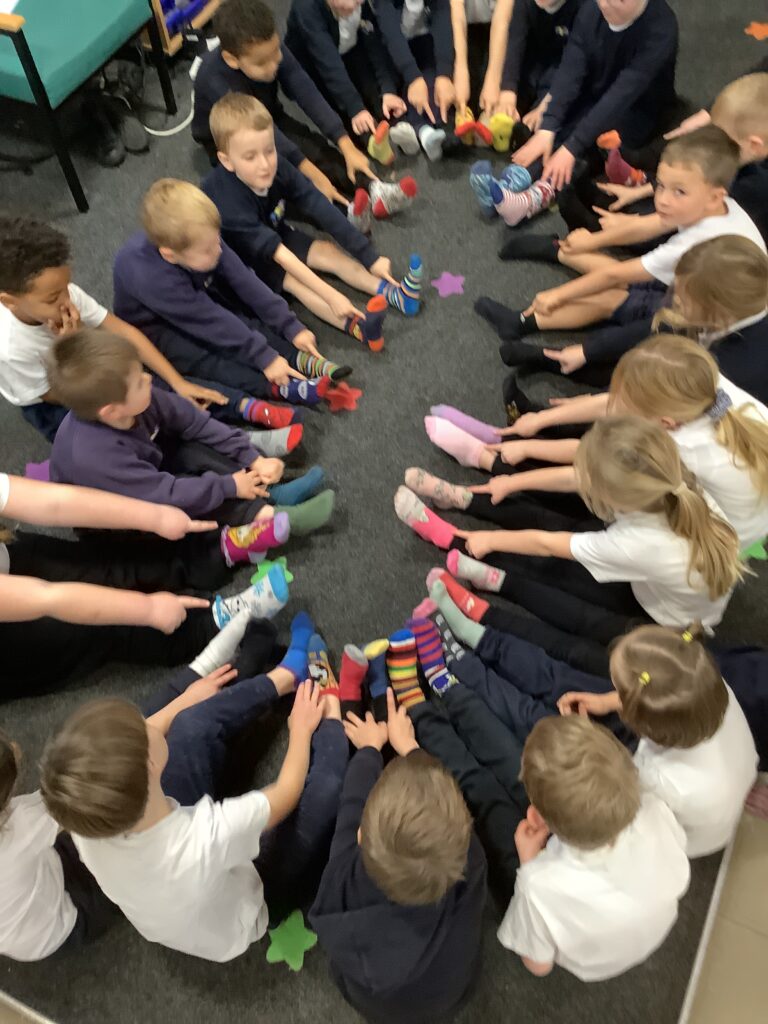
Art Topic
This half term, our topic is Art. We will be focusing on the work of George Seurat and Bridget Riley.
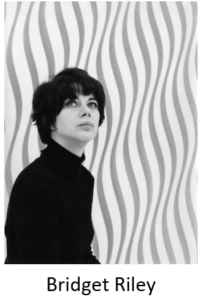
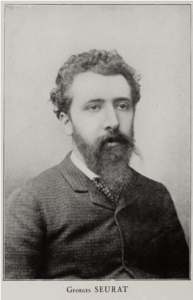
Seurat used a technique called pointillism.
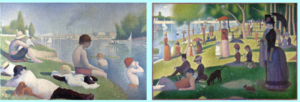
Zoom in and look at his Sunday Afternoon painting. Can you see all the small dots used to create the painting?
Bridget created op art pieces.
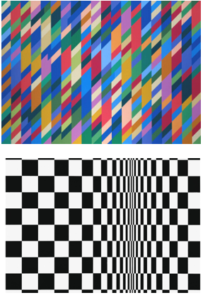
We have started by talking about the topic vocabulary, which you can see below.
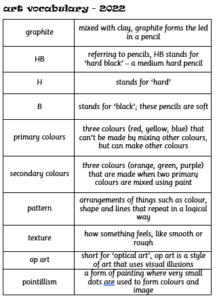
Community Green Group visit
This week, we have been lucky to have lots of visits into school for our Community Week. The children have enjoyed having different visitors in school and learning about all the things that go on in our community.
This week, we enjoyed a visit from Wetherby and Boston Spa Community Green Group. The children learned all about how the group helps preserve the environment and help the local wildlife. We talked about how the children could help the environment: recycling, turning lights off, or eating less meat, and how we could help the local wildlife: by creating bug hotels, hedgehog highways, or planting bee-friendly flowers.


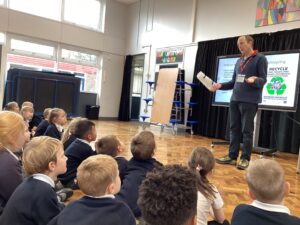
We finished by looking at the “8 to be great” promise. Can you promise to be any of the 8 to be great?

History Topic – The Great Fire of London
This week, we have been learning about Samuel Pepys. We thought about why he was so important to the people of London during the fire. The children were all very enthusiastic and could explain their thoughts.
“He went to the king and asked him for help. The king ordered the houses to be pulled down. This helped save some of London.”
We also talked about why Samuel Pepys is important to people wanting to learn about The Great Fire of London.
“His diary helps us to know what happened!”
“His diary gave us lots of information about The Great Fire of London.”
“Told us what people had to do to get away from the fire.”
After, Year 1 and 2 worked together to read some different scenarios and they had to decide what they would do in each situation.
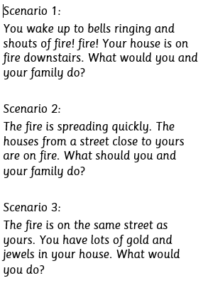

“I would get all my gold and dig a hole and bury it, then I would leave.”
“I would wake up my family up really quickly and go out of our house, hide our things and go to a new, safe place.”
“I would see if anyone needed my help to try and stop the fire.”
Challenge: Why not read a scenario to your child and see if they can tell you what they would do and why.
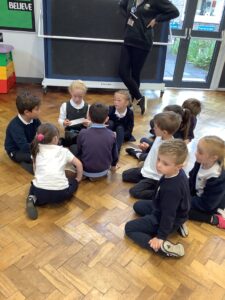
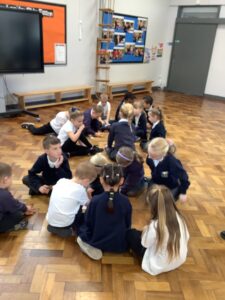
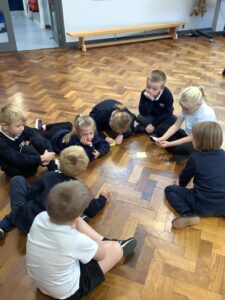
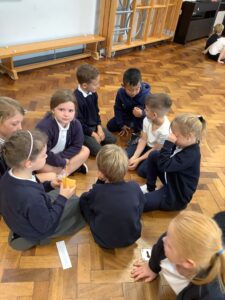
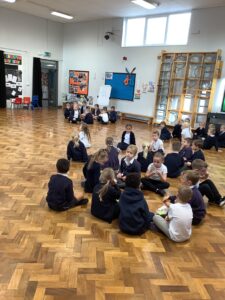
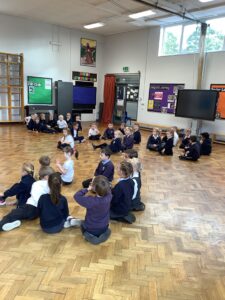
History topic – The Great Fire of London
We have started our topic and we are learning all about The Great Fire of London. We are using a book, Vlad and the Great Fire of London, to stimulate our learning. (This is a YouTube link. Top tip for watching YouTube with your child: go to the settings cog along the play bar and turn off autoplay – this avoids an inappropriate clip coming up automatically, and helps to discourage your child from passively watching clip after clip.)

We have started by talking about the topic vocabulary, which you can see below. Help your child at home by exploring the information on the BBC bitesize website.

Look at our amazing learning. These are all the key facts we already know about the Great Fire of London!

This week’s bible story
Jesus is friends with Zacchaeus: Luke 19: 1-10
Have you ever heard the story of Burglar Bill – Bill goes out every night. Getting into houses through open windows and taking things. Until one night, Bill found a baby, and that changed his whole life …
There is a Bible story about a man who stole from other people. He took extra money when he gave them their tax bills and became very rich on all the money that he stole. Zacchaeus was a little man and that small people can’t see in crowds. Read the story of Zacchaeus to find out what happened to him.
Reflection:
Jesus loved everyone when he lived on the earth. It didn’t matter how bad people were, Jesus was always there for those who needed him. This is true for us too – no one is so bad that God doesn’t love them. And the more time we spend with God – praying, thinking about him, finding out about him, the more we want to be like Jesus; kind, helpful and good. Just like Zacchaeus, Burglar Bill changed his ways and tried to be more like Jesus by loving those around him. Even though Burglar Bill and Zacchaeus made the wrong choice, God forgave them and continued loving them.
Prayer:
Dear God,
Thank you that Jesus loved Zacchaeus even when he wasn’t making the right choices. Help us to love all of those around us and be honest about our actions.
Amen